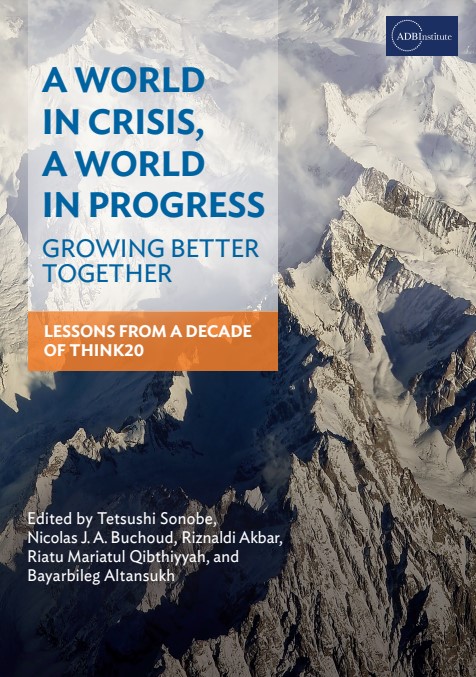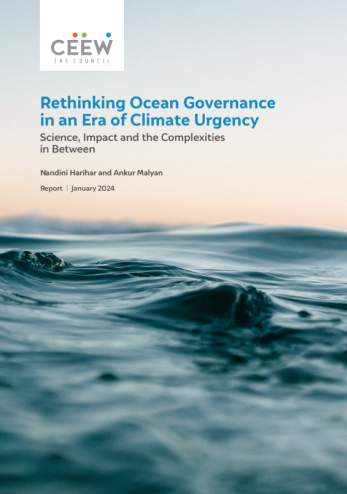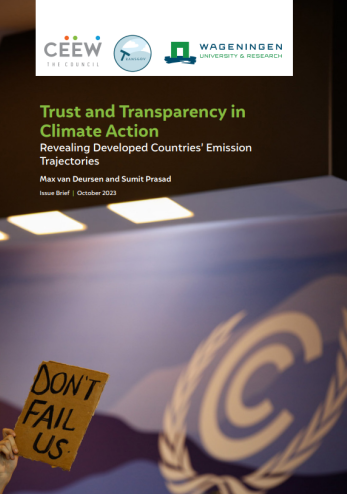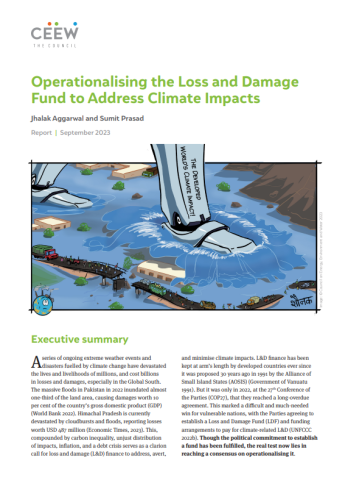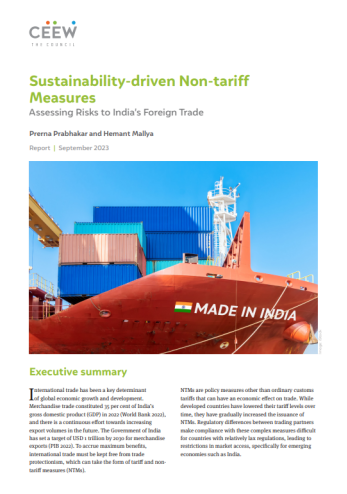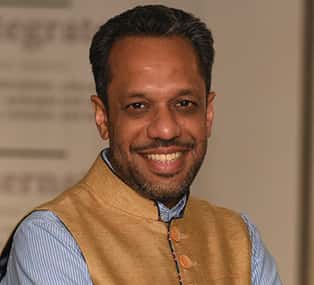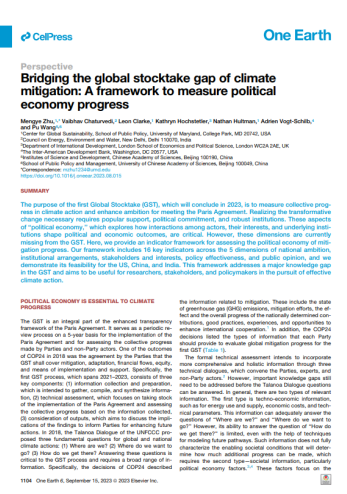Book Chapter
Balancing the Urgent and the Important: Whither Multilateralism and Collaboration in the G20?
Arunabha Ghosh, Nandini Harihar, Prayank Jain
March 2023 | International Cooperation
Suggested citation: Ghosh, Arunabha, Nandini Harihar and Prayank Jain. 2023. "Balancing the Urgent and the Important: Whither Multilateralism and Collaboration in the G20?" In A World in Crisis, A World in Progress – Growing Better Together, edited by Tetsushi Sonobe, Nicolas J. A. Buchoud, Riznaldi Akbar, Riatu Mariatul Qibthiyyah and Bayarbileg Altansukh, 98 - 108. Tokyo: Asian Development Bank Institute.
Overview
For the second year in a row, the world has not progressed much on its sustainable development goals (SDGs). Implementing the 2030 Agenda for Sustainable Development requires mainstreaming SDGs into the wider work of the G20. To be resilient against future crises, the G20 countries must better assess risks, anticipate shocks, and set an agenda that can balance the urgent (situational crises) as well as the important (vision and governance for the future).
This chapter analyses three key research questions based on past G20 presidencies (2016-2021) to highlight where the G20 has been effective, where it has lacked, and what more needs to be done. The chapter also evaluates the role of think tanks in anticipating risks and offers solutions to tackle ineffective collaboration between the T20 (Think20) and the G20.
Key Highlights
Has multilateralism via the G20 sufficiently supported the implementation of the SDGs?
- Multilateralism has been effective in tackling immediate liquidity needs, debt vulnerability and capital mobilisation in developing countries and sharing best practices by establishing knowledge platforms to build capacity for local SDG action.
- The G20 has staggered in leveraging its collective economic recovery stimulus for joint efforts towards climate and the economy and on ensuring resilient supply chains for critical energy sources.
- The G20 has lacked in overcoming institutional and market barriers to green finance and private investment.
- The G20 needs to do more to improve human security and reduce environmental degradation. So far, vulnerability assessments are restricted to the financial sector.
- The G20 has failed to address inequality between countries. The Buenos Aires Summit is the only one (so far) to explicitly focus on a people-centric agenda to reduce poverty and inequality through skill development and job creation.
Table 1: Assessing multilateralism for achieving the SDGs in G20s Summits (2016–2021)
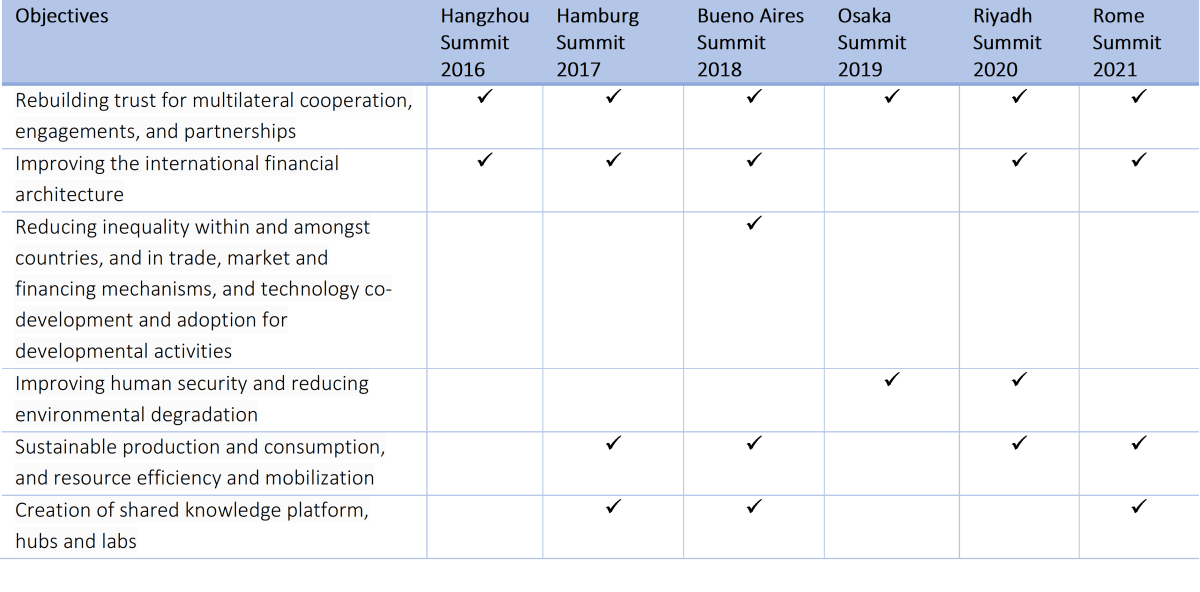
What is the scope of climate action with a development agenda at the G20?
- The G20 has taken successive measures on energy to promote universal access in developing countries, strengthen international cooperation, and acknowledge the need to advance technologies at a commercial scale.
- The G20 has struggled to integrate climate action in productive economic sectors. Despite extensive efforts in the agricultural sector, mainstreaming research and innovation of climate-resilient agricultural production, provision of nutritious food, and food availability has been lacking.
- The G20 has had limited discussion on de-risking green finance and financing for climate-proofing of critical infrastructure. There is also critical misalignment and ambiguity between sustainable, developmental, climate and transition finance under capital mobilisation.
- The G20 needs to do more to emphasise a measure of sustainable consumption and production in developed and emerging economies.
Table 2: Assessing the linkages between climate and development in G20 Summits (2016–2021)
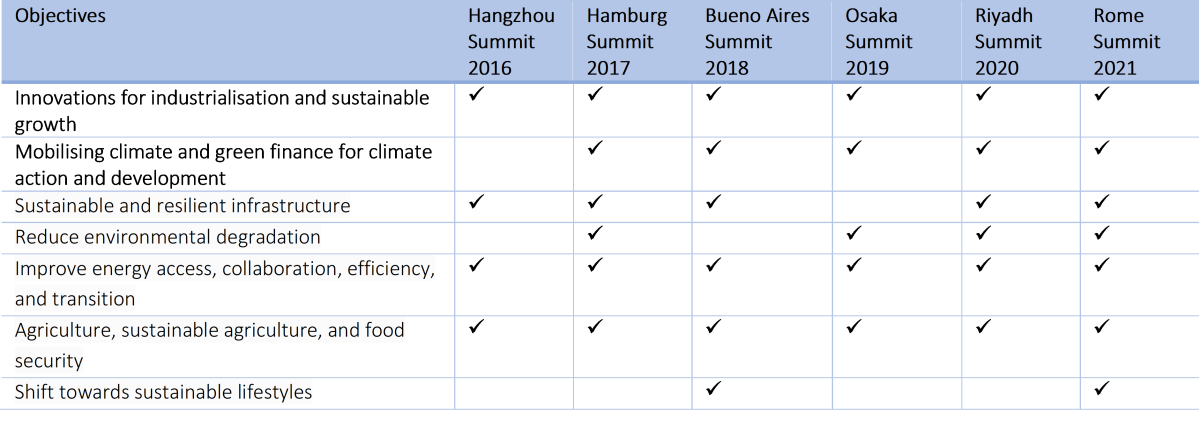
Can think tanks in the G20 become better at anticipating risks and offer governance options?
- Despite the T20’s core strength to convene on global economic governance, no major initiative on global governance or crisis response can be exclusively traced back to the T20, with discussions often limited to “what” and “why”, instead of “how” in the policy proposals.
- There is a lack of continuity in the agenda in T20 processes, which hinders long-term impact.
- A common oversight body is missing, which is key to ensuring that T20 outputs leave a mark on the G20 processes.
- T20 timelines, structure and processes must align with the G20 calendar. For instance, T20 policy proposals and communiqués are released just two months before the G20 summit, too short a period to effectively provide the presidency with policy recommendations to incorporate into the agenda.
Key Recommendations
- The G20 must aim for de minimis multilateralism–the minimum on which interests converge and the common aversions or crises we all wish to avoid. This insurance mechanism is needed to counteract the effects of major global shocks and offer a safety cushion for vulnerable communities, especially those with constrained fiscal resources.
- The G20 needs a people-centred multilateral approach to sustainable development to square priorities and negotiating positions of rich and poor countries and imagine new policy paradigms that address human security, environmental degradation, sustainable consumption and production, and aim for decarbonisation without deindustrialisation.
- The G20 needs effective multilateralism to remove critical constraints toward sustained and sustainable human development. The G20 should assist in designing global cooperation directed at climate-resilient food systems to achieve global and sustainable food security.
- The G20 must focus on challenges within the global investment regime. This includes establishing a de-risking mechanism to pool various risks across projects and countries to bring down the cost of finance and lower the risk curve, particularly in developing countries. Timely debt restructuring is also critical to address the triple crises of food, fuel and finance, particularly in low-income countries.
- The G20 should focus on managing demand for critical resources, including shaping resilient supply chains for critical minerals and green hydrogen (upstream and downstream) and envisioning a new global energy security architecture that does not lock countries into new energy dependencies.
- The G20 should build on the successes of multilateralism for SDGs to establish a dashboard or portal to track and assess the progress of different initiatives under the G20 for sustainable development and climate action. This would address challenges with information asymmetries and nudge initiatives to become more inclusive and effective.
- The G20 and the T20 must work together to restructure the T20 timeline to produce outputs earlier. A troika-like structure of the T20 could ensure that co-chairs in any single year draw on the efforts of the previous presidency and feed into the ideation of the next one.
- The T20 should necessitate greater joint research programs to build global capacity and promote regional understanding and global solidarity via exchange of policy perspectives between leading institutions and align networks, resources, and synergies to create new models of intervention and action on the ground.
"The G20 must first focus on reducing vulnerabilities to shocks and aiding those most affected. Second, bridge gaps in technology and finance with new paradigms of co-development and de-risking. And third, bring research institutions and think tanks together to work on creating the global governance architecture that can respond to future crises, whether with regards to energy security or environmental shocks."






